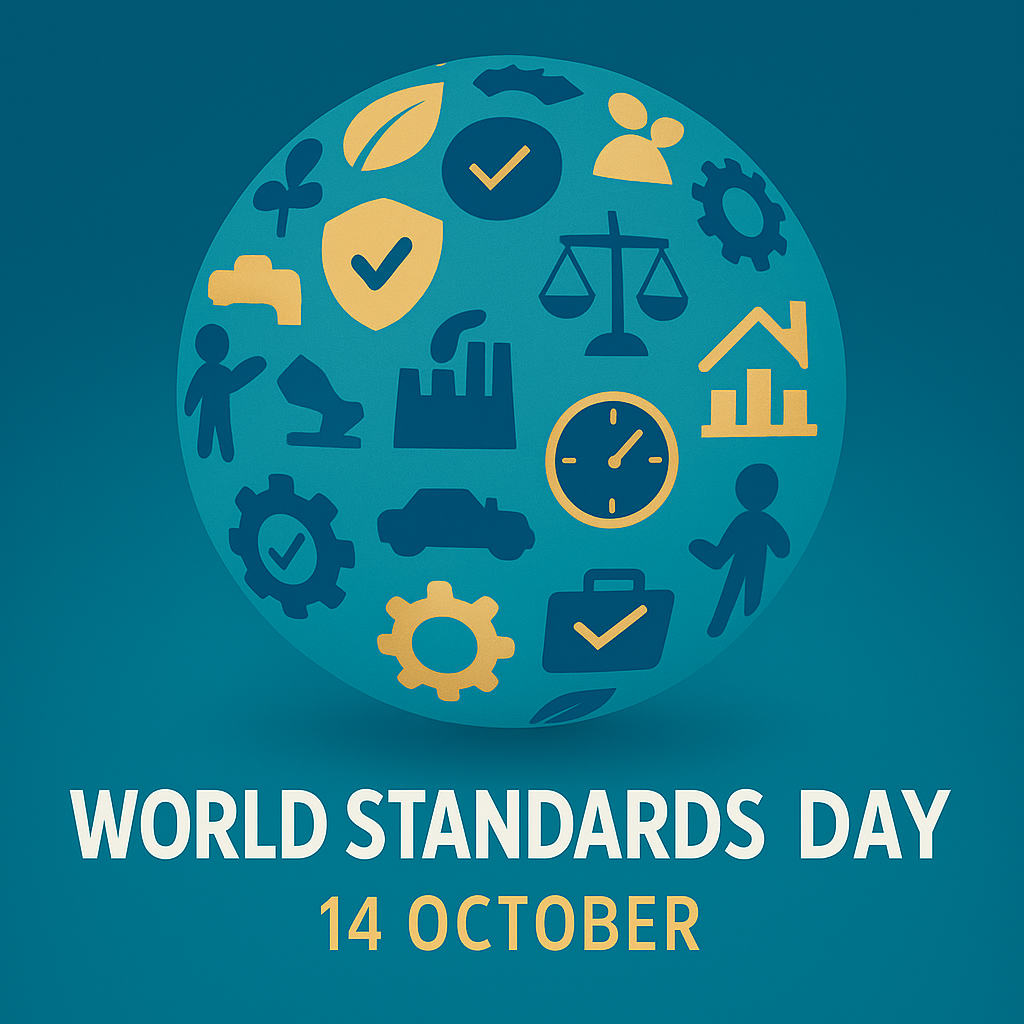What if there were no standards?
Even in the most ordinary moments of our lives, we live by a set of standards without realising it. The healthiness of the cup we use for our morning coffee, the compatibility of our phone charger with the socket, the dosage of the medicines we take… all of these are part of a set of invisible standards.
But what if these standards didn’t exist?
World Standards Day, celebrated annually on 14 October, exists to remind us of the place this invisible order holds in our lives. Jointly organised by the ISO (International Organisation for Standardisation), IEC (International Electrotechnical Commission) and ITU (International Telecommunication Union), this special day highlights the vital role of international standards in business, technology, ecology and society.
Historically, on 14 October 1946, 65 delegates from 25 countries gathered in London and agreed on the need for a structure to “guide world standardisation“; ISO officially began operations in 1947. World Standards Day was first celebrated in 1970 and, since then, has highlighted the invisible work of standards around the same date each year.
2025 Theme: Industry, Innovation and Infrastructure
This year’s theme was determined in line with the United Nations Sustainable Development Goals (SDGs): “A Shared Vision for a Better World” – with a particular emphasis on SDG 9: Industry, Innovation and Infrastructure.
This is because sustainable development is underpinned by resilient infrastructure, innovative solutions and transparent growth. ISO management system standards also play a critical role in this journey;
- ISO 9001 (Quality Management) ensures process reliability,
- ISO 14001 (Environmental Management) delivers sustainable performance,
- ISO/IEC 27001 (Information Security) guarantees digital security,
- ISO 22301 (Business Continuity) strengthens resilience.
These are practical management tools that shape organisational culture and pave the way for a shared vision.
The Importance of Standards for Companies
Standards are practical processes that guide businesses in their daily operations. Certification provides organisations with independent recognition; however, standards are a “culture”.
- Standardisation ensures that work is carried out according to clear and agreed-upon rules.
- Repeatability produces predictable results; it means fewer errors, less chaos, and more stability.
- Internal quality enhances harmony between processes and directly impacts the quality of the final result. This quality is felt by customers.
Especially in 2025, during the digitalisation and sustainability-focused transformation process, adherence to standards directly affects companies’ competitiveness.
How Should World Standards Day Be Celebrated?
Instead of merely sharing on social media, organisations can create deeper communication opportunities;
It is an ideal day to explain to employees how standards support daily operations; to show our customers and partners that certification is not just a “wall certificate” but the backbone of our corporate culture; and to encourage our employees to contribute ideas for process improvement.
In doing so, we can also incorporate the current agenda for 2025: collaboration on the ISO–GHG Protocol (International Organisation for Standardisation – Greenhouse Gas Protocol) in carbon accounting, ISO/IEC 42001 (Artificial Intelligence Management System Standard) in artificial intelligence management, and SDG 9 (Sustainable Development Goal 9 – Industry, Innovation and Infrastructure) infrastructure–innovation vision. World Standards Day 2025 reminds us of the rules of coexistence. Thanks to standards:
- Products are safe, systems are compatible, and services are accessible.
- Global trade functions, innovation spreads, and societies develop.
- Human life is protected, and the environment becomes sustainable.
If standards had never existed, the minor disruptions I described this morning would quickly turn into major chaos; everything from electricity to aviation, food to the digital economy would be searching for a common language. However, in 2025, World Standards Day paints a different picture for us…The ISO–GHG Protocol in carbon accounting, the governance framework of ISO/IEC 42001 in artificial intelligence, and the infrastructure-innovation targets of SDG 9 are different pages of the same story. Standards are not just documents we hang on our walls; they are the social contract for a more liveable, transparent, and reliable world.
This year, we celebrate with the call for a “Common Vision for a Better World”; because where there are standards, there is trust; where there are standards, there is a future.
As CFECERT, we rebuild excellence and sustainability every day through our training and certification services in line with standards. You can reach us at info@cfecert.co.uk Let us transform harmony into trust and trust into shared value together.
Sources:
https://www.iso.org/world-standards-day.html
https://certiget.eu/en/guides/world-standards-day-2025


